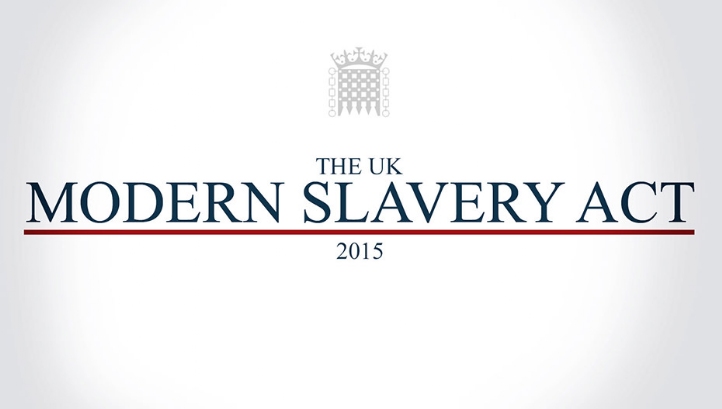RESEARCH INTO MODERN SLAVERY CARRIED OUT BY UNIVERSITY OF NOTTINGHAM & CHAS
The article below will provide you with information on the research carried out by the University of Nottingham and CHAS (Construction Health & Safety accreditation scheme) on the understanding and prevention of Modern Slavery.
It will also deliver clarity of the 2015 Modern Slavery Act, the expectations behind it and lastly a brief summary of further research undertaken on Modern Slavery.

Findings from the Research
Research carried out by the University of Nottingham and CHAS show that many employers in the Construction sector have “fallen short in taking further actions” to prevent modern slavery. In a report that sets out the initial findings of the research, Dr. Akilah Jardine of the University’s Right Lab said that although those businesses who have responded believed their organisations had made a commitment in tackling modern slavery, they did feel that “many fall short of taking any further actions.” She then added “Modern slavery policies are, in themselves, insufficient to address this issue.” Dr Akilah Jardine also stated that previous studies had revealed that “a tick-box approach to tackling modern slavery” was being used in other sectors. This study was also backed up by the findings from CHAS.
The reasoning behind the research was to assess the awareness of modern slavery. This research was done by looking at the 30,000 members of the CHAS scheme with a view to help in developing resources to detect and prevent slavery in the future.
229 of CHAS member companies participated in the survey, 174 were small or micro entities, and 169 of which worked in the construction sector. The results showed that awareness of modern slavery was widespread, with 72% confirming that their organisation had an anti-slavery policy. However fewer organizations were actively monitoring the effects of having their policy in place through key performance indicators (KPIs) or were carrying out due diligence to see if there were any risks within the organisation or its supply chain. Only 39% stated that they had put a due diligence process in place for six months or more, and 17% had no plan of establishing this process. Half also had no intention of establishing any KPIs to measure success in either preventing or detecting slavery.

The Law – Section 54 of the 2015 Modern Slavery Act
Anti-slavery policies can be produced for various reasons including genuine concern, obligation through legislation, commercial requirements, or to safeguard an organisations reputation. The researchers stated, “It is possible the vast majority of respondents have a modern slavery policy because of requirements by clients or contracts.” They then noted that larger clients will tend to fall within the scope of modern slavery legislation. Section 54 of the 2015 Modern Slavery Act requires firms with annual revenue of £36m or more to report on their anti-slavery measures.
Dr Jardine noted within her research that only 10 out of the 229 respondents in the study had revenue above the law’s £36m threshold and said, “which means that the majority of respondents do not have a legal responsibility to comply with section 54”. She also added that “The government expects that larger companies, legally required to comply with the Modern Slavery Act, will force responsibility down their supply chain through their commercial and operational activities and contractual relationships but most participants demonstrate that current drivers of anti-slavery action are not a significant driver for them.”
Amongst the organisations investigated within the research of which was mostly small organisations, 66% said they felt no pressure from either the government or large businesses to prevent the mistreatment of vulnerable workers. 67% had also said that they felt no pressure to act from consumers or society.
In a statement provided by CHAS, they said: “With over 90% of all businesses in the construction sector represented by SMEs, supporting these organisations to manage modern slavery effectively is vital to improving the sector’s record. CHAS also said that it was working with the University’s Rights Lab to create the tools and resources that construction SMEs will need to correctly understand and help to eliminate labour exploitation in the construction sector.

Further Research
In 2020 Construction News revealed that reports of suspected modern slavery cases were higher in construction than in any other industry during the first lockdown period. A total of 57 cases with 209 potential victims were recorded between the 23rd of March and 23rd of September by the modern slavery helpline, a 24/7 service provided by charity Unseen UK. – A link to Unseen UK Modern Slavery & Exploitation Helpline website has been provided below.
In 2019, CN and BBC Three carried out a joint investigation that showed how easy it was to buy slave labour in the UK.
Helpful Resources
Government Webpages
https://www.gov.uk/government/collections/modern-slavery
https://www.gov.uk/guidance/publish-an-annual-modern-slavery-statement
Anti-Slavery.Org
https://www.antislavery.org/slavery-today/spot-the-signs-of-slavery/
Stop the Traffik
https://www.stopthetraffik.org/
Modern Slavery Helpline
Website – https://www.modernslaveryhelpline.org/
Helpline Number: 08000 121 700
